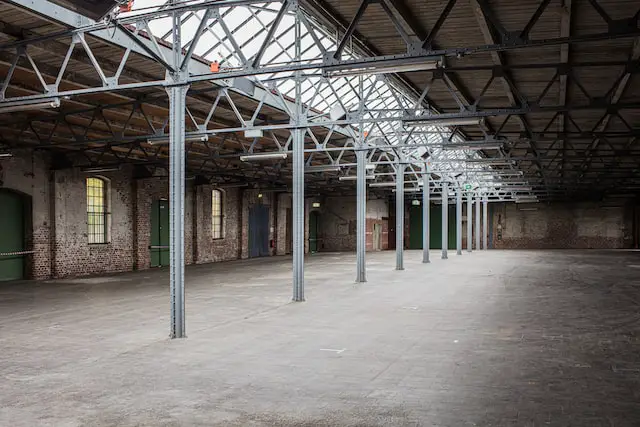A warehouse is normally an empty space that is typically used to store raw or manufactured goods either permanently or temporarily. But how do warehouses make money?
While warehouses can be used to serve many other purposes, sometimes it can be overwhelming to figure out the best use for the space while also finding a way for the warehouse to make a profit.
If you find yourself in possession of a warehouse that you don’t know what to do with it, you are not alone. So how do warehouses make money when they typically are empty spaces that don’t offer any paid services?
In this article, we will discuss some ways in which warehouses can make money.
How Do Warehouses Make Money?
Here are some of the most common ways to monetize warehouses:
#1. Renting out for events
First on our list of how do warehouses make money, is by renting a warehouse out for events. Renting opportunities can be endless and in turn, profitability can be quite high.
Depending on the size of the warehouse, it can be rented out for a wide range of events, such as speaking engagements, concerts, art shows, receptions, sports events, and as a film location.
The range of renting rates depends on a variety of factors, including location, size, facilities, and upkeep.
#2. Converting the space
Another very profitable way for warehouses to make money is by being converted into other spaces.
Like renting, there is an almost endless amount of possibilities, however renting and conversion differ in the sense of permanency.
While renting allows for quicker turn arounds than converting, it doesn’t mean converting a warehouse is any less profitable.
Warehouses can be converted into a variety of places, such as recycling facilities, coworking spaces, flea markets, shopping centers, indoor golfing ranges, breweries, and many more.
#3. Selling storage space and units
Third on our list of how do warehouses make money, is by creating self-storage units within the space. This is another way to keep the warehouse, while still making a profit from it.
The amount of space within the warehouse being rented out for storage is up to the warehouse owner. It stands to reason that the larger the space and the more available spaces for rent will allow for a larger profit to be made.
#4. Parking spots
If a warehouse is in a busy or highly congested area, it could be the perfect solution for drivers and local businesses. A warehouse owner can either convert their warehouse to a parking garage or lot or simply sell or rent out the warehouse’s surrounding lot area.
Utilizing already existing open lot space for parking spots leaves the owner with little to no overhead costs making for a very profitable parking lot business. This space could be used as paid parking for drivers in the area or it could be sold or rented to surrounding businesses that don’t have parking lots of their own.
#5. Leasing to another business
Last on our list of how do warehouses make money, is through leasing out warehouse space to other businesses. Some companies can find themselves in a financial pinch when they need a place for their business but can’t afford to buy an entire space.
Leasing out warehouse space can be extremely lucrative. And, leasing usually leads to more long-term clients, which means less work on the owner to try and constantly find the next profitable use for the space.
Conclusion
So how do warehouses make money? One of the quickest ways to monetize a warehouse is to rent it out. Many organizations need warehouse space on a short-term basis. Renting the space out for events is one of the best ways to monetize a warehouse.
Next a warehouse can be converted into something else like a open-air market, a flea market, or a parking lot. All of these options are can be an excellent way for warehouses to make money.
Warehouses can also be used for storage – both short and long-term. For instance, a warehouse could be split into storage units with individual units rented out.
Finally, a warehouse could be leased in its entirety to another business. This works out well when one business has extra warehouse space that it does not need and wants to generate income with this asset.

